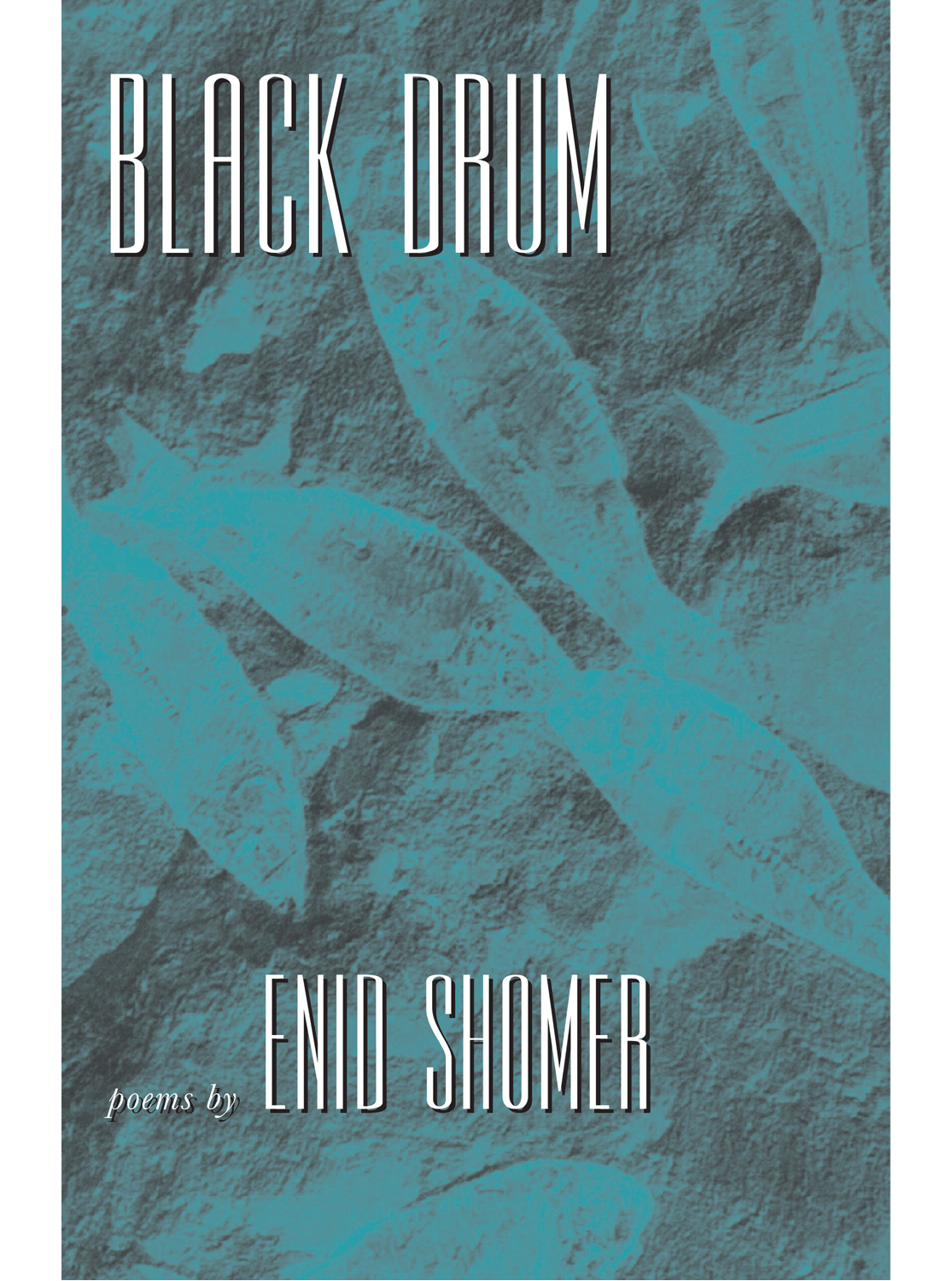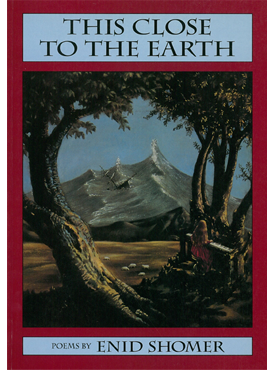In Black Drum, Enid Shomer fuses mind with body, knowledge with physical being, and affirms the capacity of language to accomplish this fusion. With clearly fashioned images, her focus often narrows on close particulars or leaps to wide angles, as in these lines from the title poem in which the narrator is battling a fish:
We had been struggling for ten
minutes—a lifetime—over whose world
would prevail: his, with its purled
edges and continuous center, or mine
with its yin and yang,
its surface incised into sky
and sea, the land like a scar
between.
The characters in Shomer’s poems discover the ceaseless motion of living in the body and the inevitability of decay. In “Notes from the Sketch book of Gustav Klimt,” Shomer boldly says, “I have always balked / at the purely decorative, / but then I saw that the symbolic / could stir us by its absence.”
Black Drum insists that life on earth speaks of transformation and transience; epiphany can happen any where, with “schemes illegal and grand” with slot machines, race horses, dead or estranged relatives, and lost love. Enid Shomer signals us to make the most of life, despite our limitations and in the face of bewildering catastrophe.



